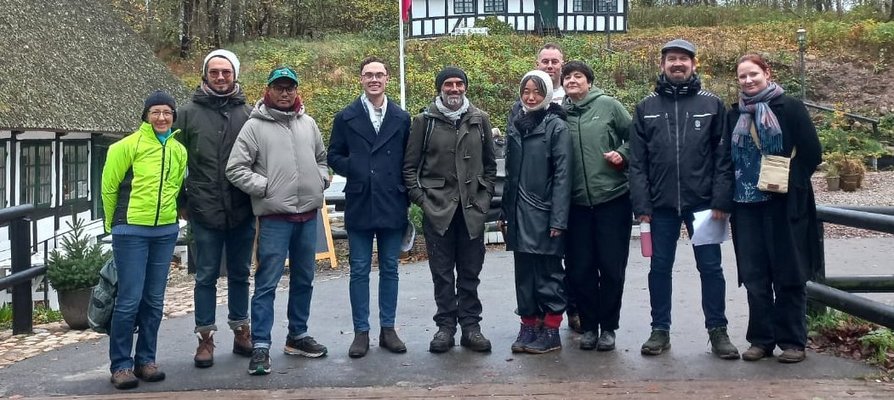
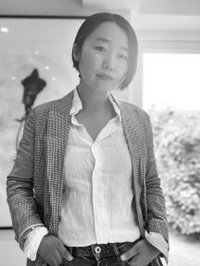
Eiko Honda is an Assistant Professor in Japan Studies at the Department of Global Studies at Aarhus University. Eiko specialises in the intellectual history of modern Japan and the environmental humanities. The project Unearthing Multispecies Intellectual History: Earthing Trajectories of Area Studies builds on two strands of her interconnected parallel work. Firstly, her solo research on the intellectual history of transdisciplinary paradigm once cultivated by Japanese scientist-polymaths in modern Japan. Eiko concurrently brings her historical findings and questions into the second strand of work: collaborative interdisciplinary research. Working with scholars and practitioners of various fields, she investigates shifting roles and methods of History and Area Studies in the time of climate crisis.
Publications relevant to the above include "Minakata Kumagusu and the Emergence of Queer Nature: The Civilisation Theory, Buddhist Science and Microbes, 1887-1892" in Modern Asian Studies (Cambridge: University of Cambridge Press, 2023) and "Undoing the Discipline: History in the Time of Climate Crisis and COVID-19" in Journal for the History of Environment and Society (Ghent: Brepols, 2020), co-authored with the historian of Medieval Europe Amanda Power and the historian of contemporary Africa Iva Peša.
Eiko holds D.Phil in History at the University of Oxford (2021). Before her retraining as a historian, she extensively worked as a curator and writer of contemporary art and ideas based in London as the overseas curatorial fellow of the Agency for Cultural Affairs, Japan. Her curatorial work brought together art practice in conversation with philosophy, science, technology, and archaeology in historical contexts of Anglo-Asian relations.
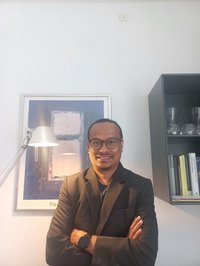
Hatib Kadir is a Postdoctoral Researcher at the Department of Global Studies at Aarhus University. Hatib specialises in the study of multispecies colonialism, settler colonialism, ecological studies, and the environmental humanities. His book project is on Unearthing Multispecies Coloniality in the Swampy Zone - West Papua where he developed a new approach to seeing how colonialism operated through a new angle. Focusing on ecology and human and non-human relations, Hatib’s research project posits that colonialism exercises its influence not only coercively, but also through the construction of institutions that cultivate consent. This nuanced form of power extends its reach over both human and non-human entities, with the ultimate aim of enhancing the profitability and productivity of colonial endeavors. By adopting a multispecies approach, Hatib’s project tries to unearth myriad states of exception, messiness, ferality, ruination, and endurance both human (settlers and Indigenous people) and non-human that unexpectedly emerge amidst the governance strategies of the Indonesian colonial regime.
Publications relevant to the above includes "Multispecies Marginalities: Mangroves and Migrant Papuans in the Margins of Urban Colonization" published in The Australian Journal of Anthropology. Hatib holds a Ph.D in Anthropology from the University of California, Santa Cruz (2018).
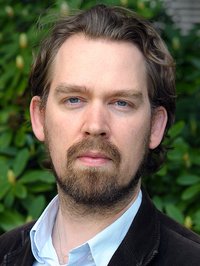
Aike P. Rots is a Professor in Asian Studies at the University of Oslo. He is the author of Shinto, Nature and Ideology in Contemporary Japan: Making Sacred Forests (Bloomsbury 2017) and the co-editor of Festivals in Asia (special issue of Religion, 2023), Sacred Heritage in Japan (Routledge 2020), and Formations of the Secular in Japan (special issue of Japan Review, 2017). He has written numerous peer-reviewed journal articles and book chapters in the fields of religious studies, Asian studies, critical heritage studies, and environmental humanities. Recent articles include "When Gods Drown in Plastic: Vietnamese Whale Worship, Environmental Crises, and the Problem of Animism" (with Nhung Lu Rots; Environmental Humanities, 2023) and "Whaling on Stage: A Comparison of Contemporary Japanese Whale Festivals" (with Ellen Haugan; Religion, 2023). He is currently PI of the ERC-funded project Whales of Power: Aquatic Mammals, Devotional Practices, and Environmental Change in Maritime East Asia (2019-2025)
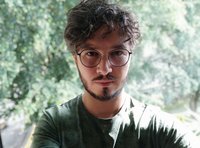
Diego Molina is a British Academy Fellow at the Royal Holloway, University of London. He is a botanist who turned to human geography and environmental history to understand the changing relationships between people and plants. He worked for several years as a botanist in Colombia, participating in scientific explorations, species discovery, and designing public policies for plant conservation. Before becoming a British Academy Fellow at the RHUL, he was a Rachel Carson Fellow in Munich.
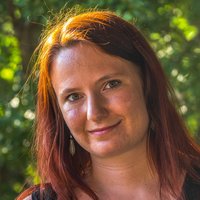
Rithma Kreie Engelbreth Larsen is a PhD fellow at the Department of Philosophy and History of Ideas at Aarhus University. Her PhD project investigates how climate and nature imaginaries have changed within and beyond the UN, and how the local and global scales of climate knowledge have recently been re-negotiated as we have seen an increased inclusion of Indigenous knowledge holders.
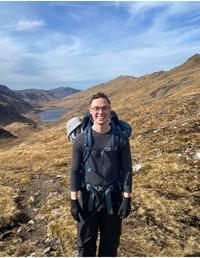
Ryan Mealiffe is an early career environmental historian of medieval Europe interested in multispecies perspectives and connections, non-human agency, and innovative, interdisciplinary methods therein. His current research ‘follows the birds’ of the Medieval East Atlantic c. 800 to 1400, tracking the changing entanglements, rhythms, and disruptions between the avifauna and people of medieval coastal communities across what is today known as the East Atlantic Flyway. His interdisciplinary approach to Global Environmental History is characterized by empathy and attentiveness to what matters to non-human animals. Rather than confine avian subjects to the imagined cages of human periodization and geography, his methodology is as peripatetic and dynamic as the birds of the medieval Atlantic, tracking them as they fly in and out of people’s lives as highly mobile agents of connection stitching together locales along wind and water routes. Ryan’s research promises to illuminate the ubiquity of the avian in medieval cosmologies, culture, and daily life as well as the particularities of local naturecultures with distinct traditional ecological knowledge of a class of animals recognized as excellent bioindicators.
Ryan is completing his M.Phil in History at the University of Oxford before starting a D.Phil in History jointly funded by the Clarendon Fund, the Oxford Humanities Division, and Wolfson College, Oxford. He holds bachelor’s degrees in History and Anthropology from the University of Washington, Seattle, where he worked in archaeological collections at the Burke Museum of Natural History and Culture.
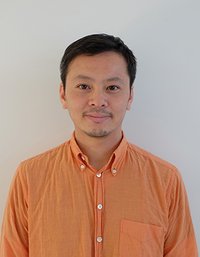
Toshiaki Hicosaka is Head of Department at the Department of Art and Child Studies, Kyoto University of the Arts. He is organizer of the artist collective Kisoji with MAETANI, Kai and TATEGAMI, Kotaro. Father of two. With an interest in phenomena where objects and humans intertwine. He engages in the practice of participating in objects with others through various approaches such as drawing, picking up, and walking.
He was a researcher for the Rohm Theatre Kyoto Research Program in 2022 and recipient of the Pola Foundation overseas research fellowship (England and Iceland, 2015). Received the Pollock-Krasner Foundation production grant (New York, 2009). Solo exhibitions include those at The Triangle, Kyoto Kyocera Museum of Art (2022), Daiwa Anglo-Japanese Foundation (London, 2017), AISHONANZUKA (Hong Kong 2016), Ohara Museum of Art (Okayama, 2009), Shiseido Gallery (Tokyo, 2008), ARCO Solo Project (Madrid, 2008).
Has participated in group exhibitions in the UK, France, Lithuania, Malaysia, and in Japan at the Hyogo Prefectural Museum of Art, Kyoto Art Center, Museum of Contemporary Art Tokyo, and others.
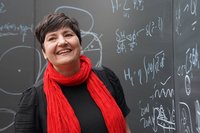
Sonia Contera is a Professor of Physics at the University of Oxford. She is interested in learning how matter entangles itself with its environment, storing information in time and space, to create complex structures from the nanometre scale up, that can adapt, learn, reproduce and evolve to become “alive”. She focuses on understanding the profound physical meaning of “biological shape”, so she studies the physics of “biological growth and shape” in diverse systems such as plants, neural networks and tumours. She writes on the relation of physics and biology with history and politics, for El Pais newspaper and others, and is a public speaker. She is the author of Nano Comes to Life: How Nanotechnology is Transforming Medicine and the Future of Biology. She is mother to two children.

Jeremy Farr is an interdisciplinary researcher working across environmental sustainability and social science, specialising in food systems, ethnoecology and archaeobotany. He recently completed his PhD: "The archaeobotany of food systems in southern-central Africa in the first and second millennium CE and its implications for food security in the region today". He is currently a CSIRO Early Research Career Fellow working on food system dynamics and the enablers and barriers for food system transformation.

Steffen Kloster Poulsen is research assistant to Eiko Honda at the Department of Global Studies at Aarhus University. His academic field of interest includes translation studies, photography studies, art history, and bookmaking, and his latest academic publication "Når eksplosioner er kunst: Hatakeyama Naoyas idé om fotografer som latente kunstnere" (in Danish) investigates the value of looking beyond Euro-American sources when discussing photography. He has exhibited his photographic works in Scandinavia, Latvia, and Japan, and runs the micro-publisher Kokon which publishes Japanese literature in Danish translation.
Steffen holds a BFA in Fine Art Photography from Valand Academy in Gothenburg as well as a BA and MA in Japan Studies from University of Copenhagen